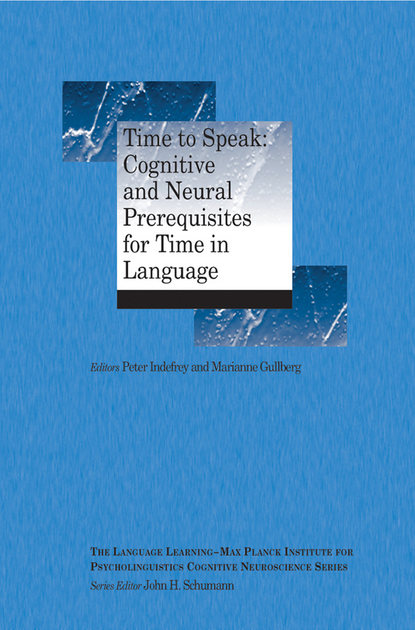
Time to Speak скачать fb2
Peter Indefrey - Time to Speak краткое содержание
Time is a fundamental aspect of human cognition and action. All languages have developed rich means to express various facets of time, such as bare time spans, their position on the time line, or their duration. This volume explores what we know about the neural and cognitive representations of time that speakers can draw on in language. Considers the role time plays as an essential element of human cognition and action, providing important insights to inform and extend current studies of time in language and in language acquisition Examines the main devices used to encode time in natural language, such as lexical elements, tense, and aspect, and draws on the latest psychological and neurobiological findings Addresses a range of issues, including: the relationship between temporal language, culture, and thought; the relationship between verb aspect and mental simulations of events; the development of temporal concepts; time perception; the storage and retrieval of temporal information in autobiographical memory; and neural correlates of tense processing and sequence planning
Чтобы оставить свою оценку и/или комментарий, Вам нужно войти под своей учетной записью или зарегистрироваться



